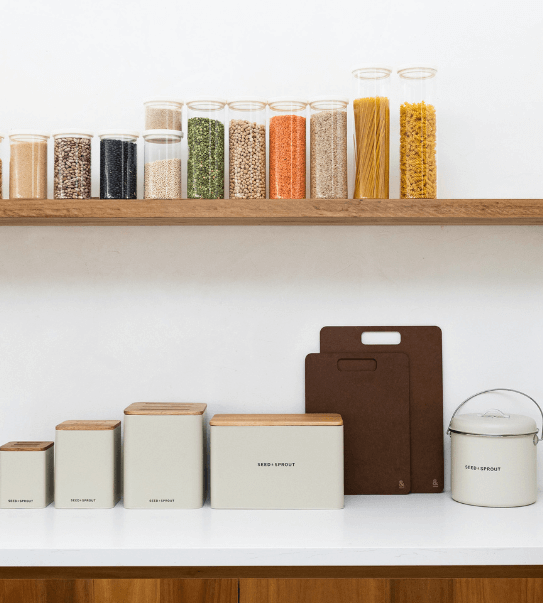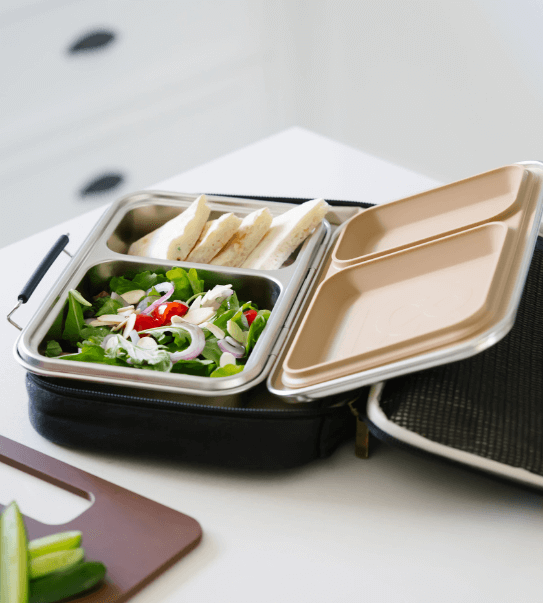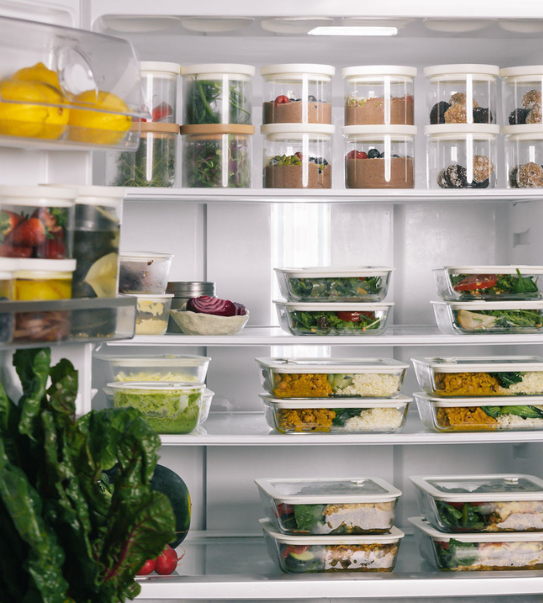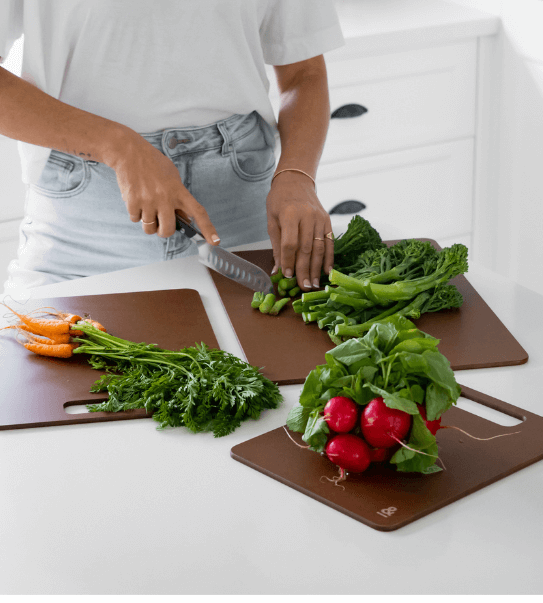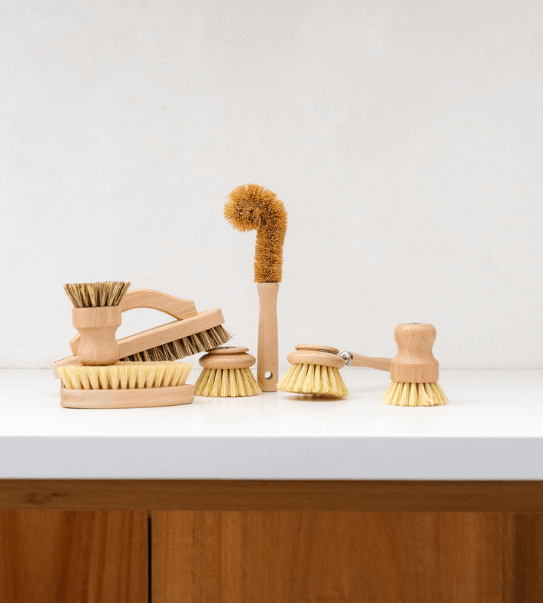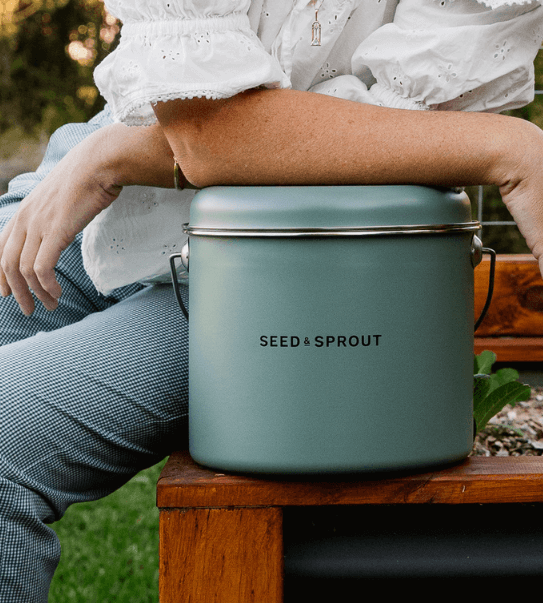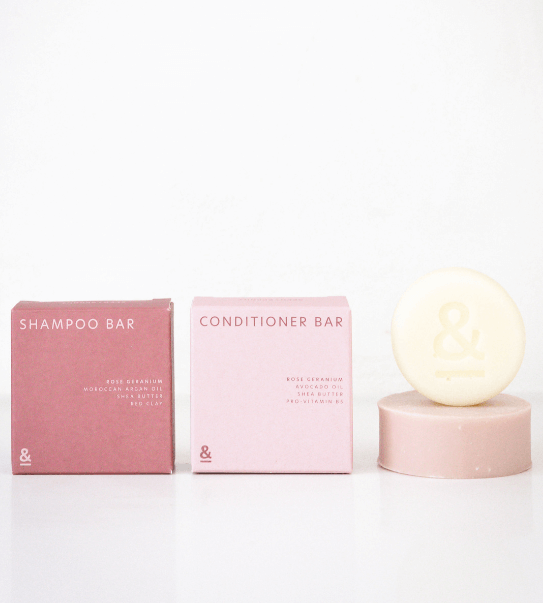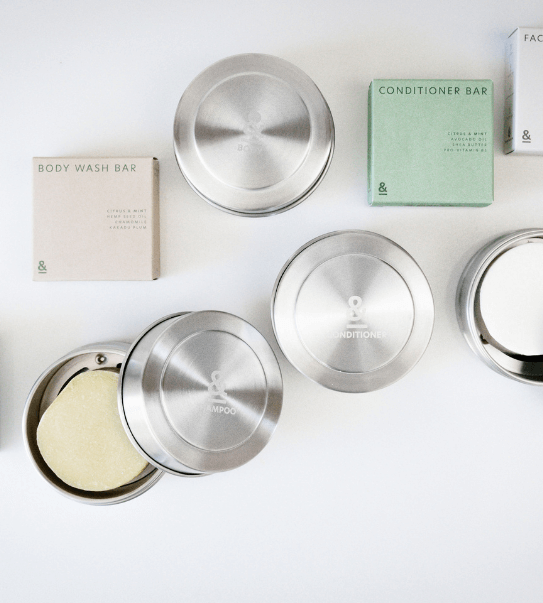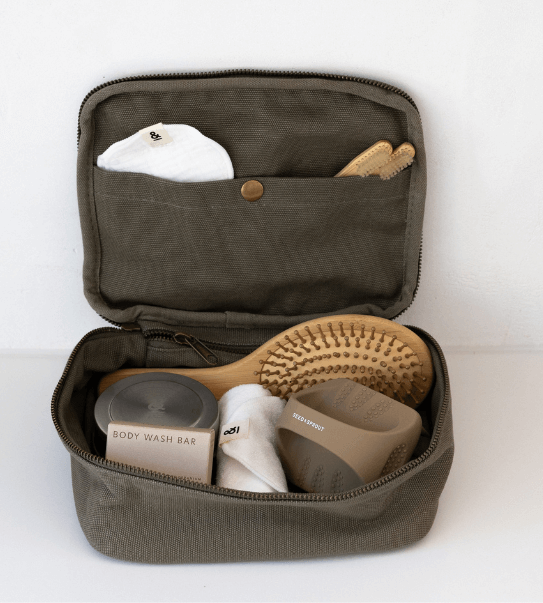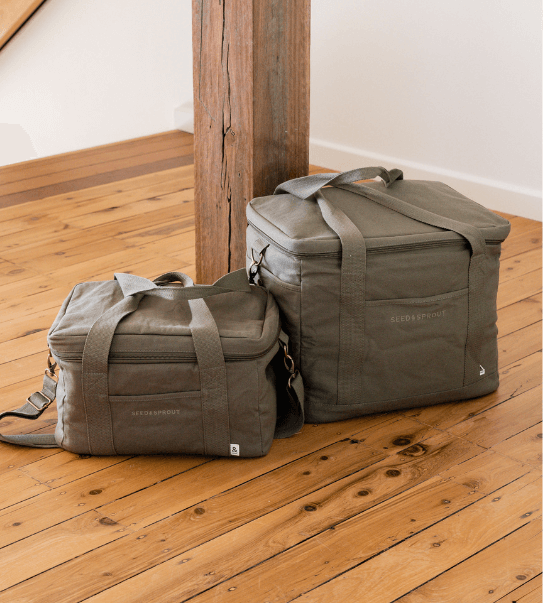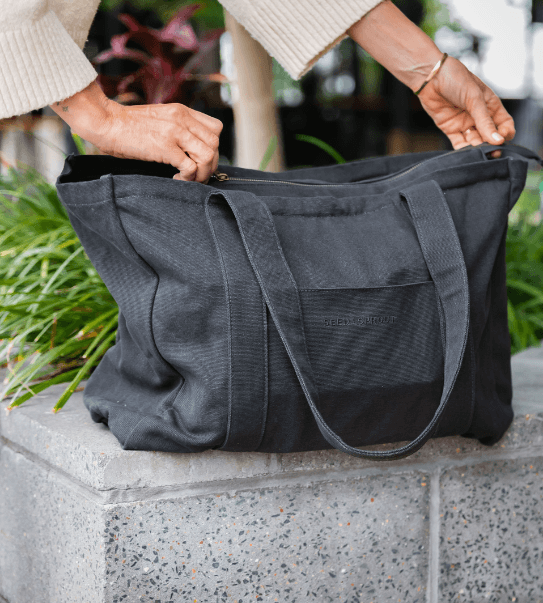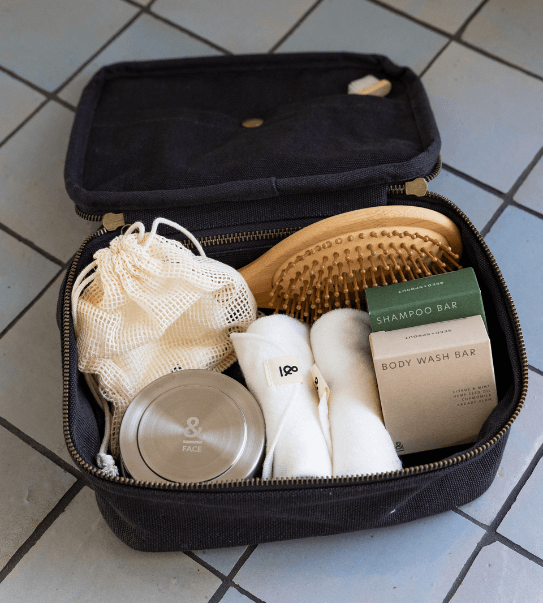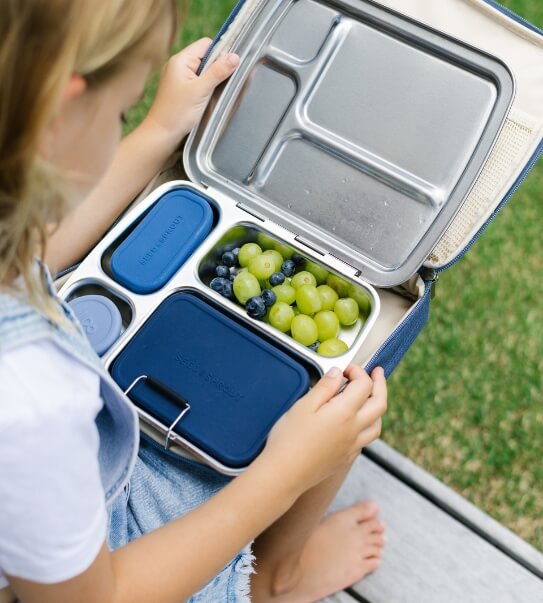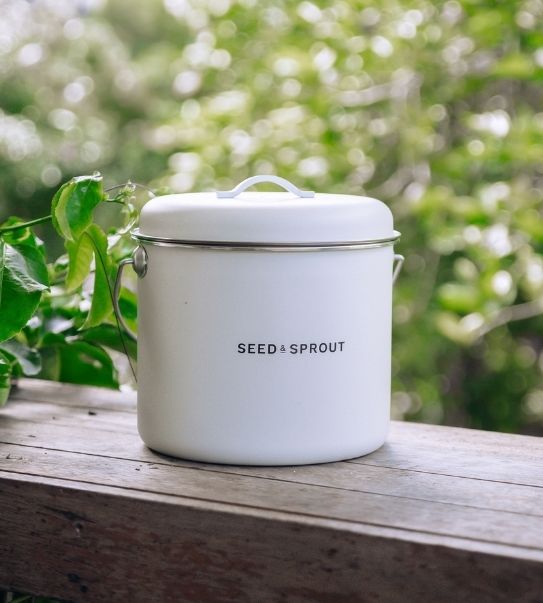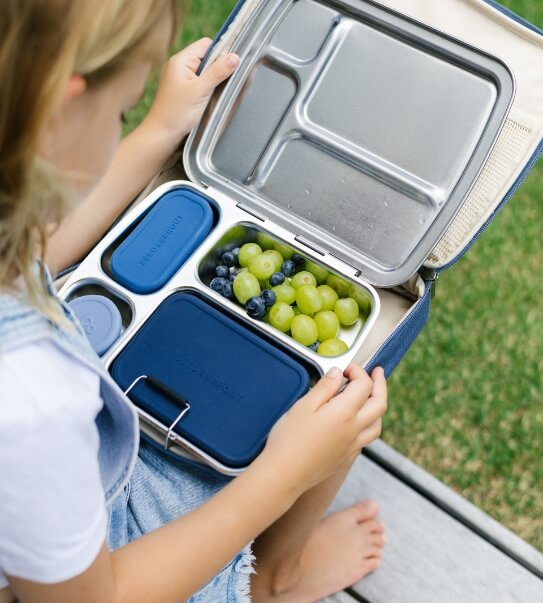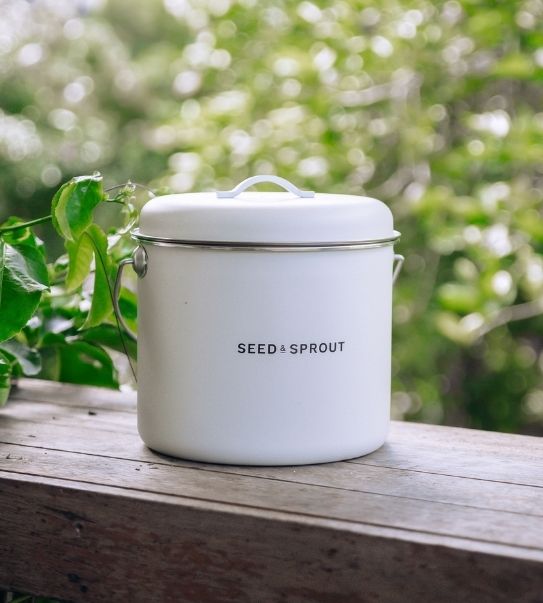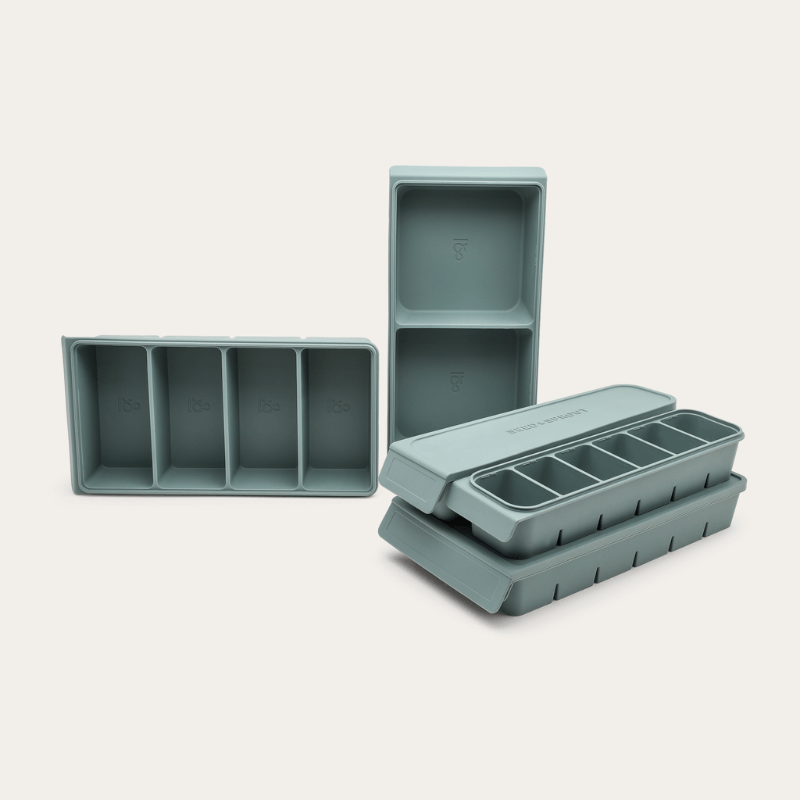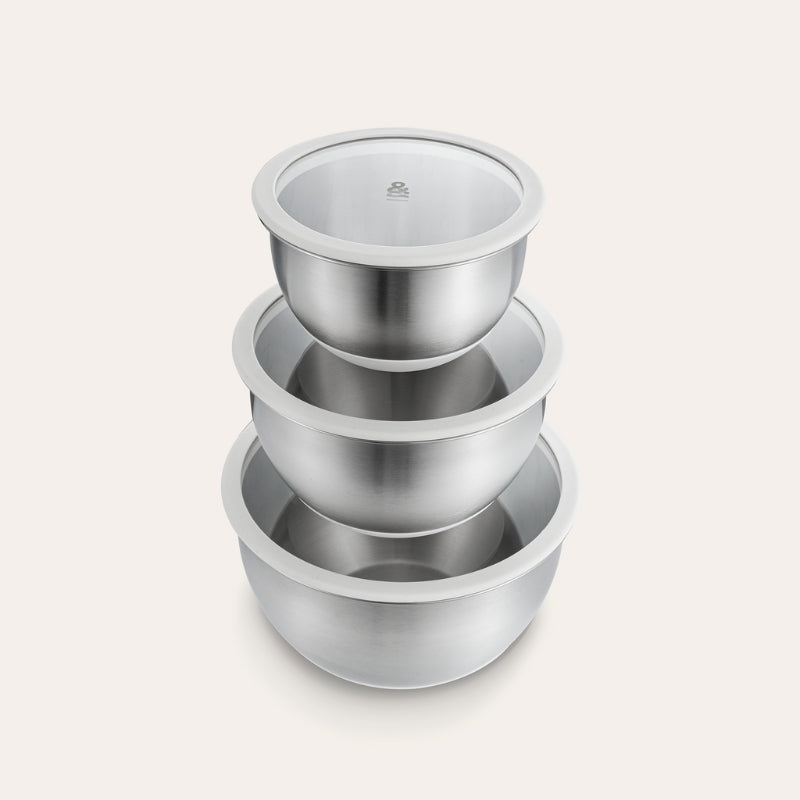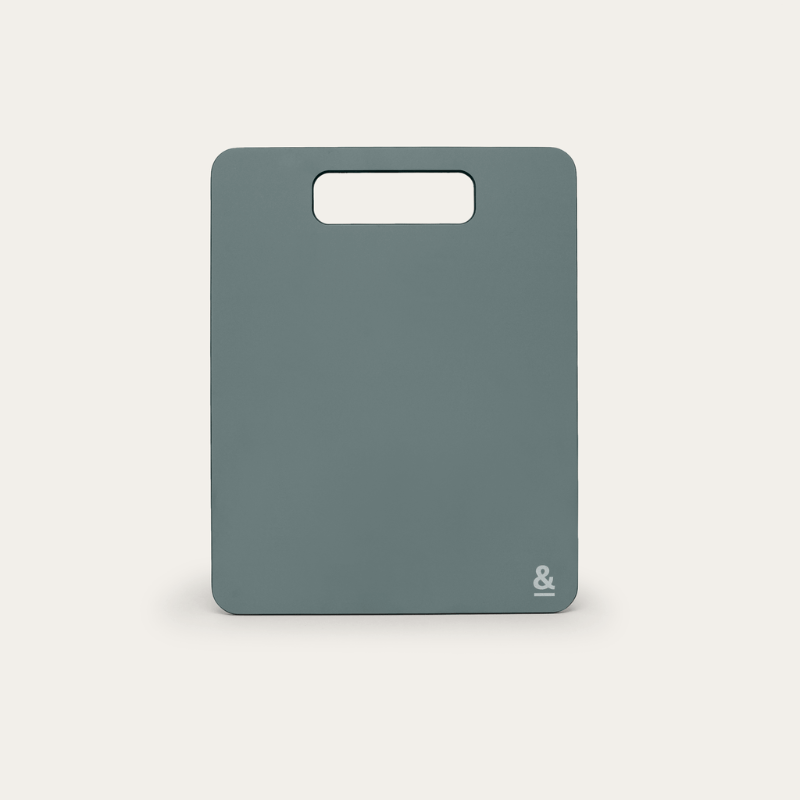8 Tips to Meal Prep on a Budget by Sophie Kovic
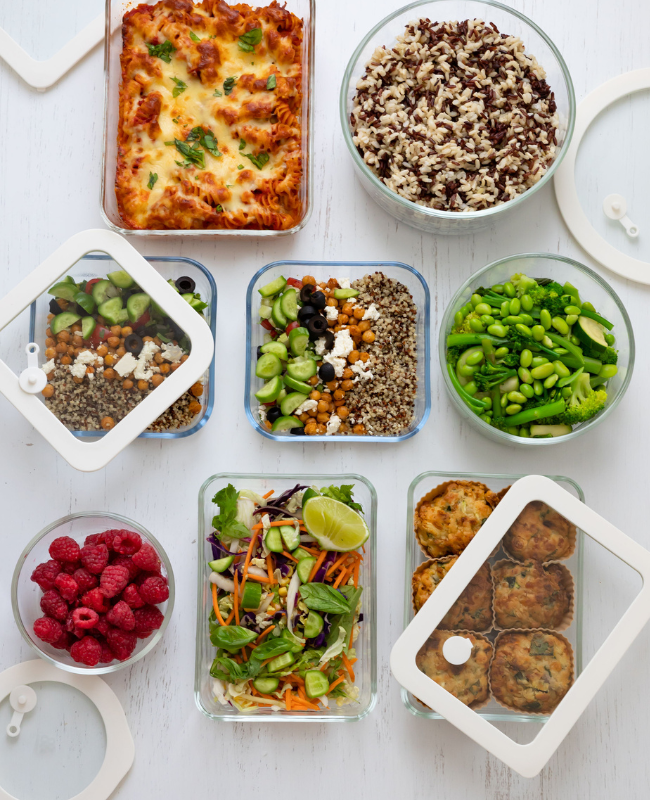

Looking for some eco(nomical) meal prep ideas? With the rising cost of living, it's possible to still create yummy meals but keep an eye on costs. With a bit of planning you can reduce your grocery bills and ensure you get the most out of your weekly shop.
Shop at Home
Sounds weird right? Stay with us… before you head to shop for groceries, go through your fridge, freezer and pantry to see what you already have. Have you got rice, sauces, stock, leftovers or other items you can incorporate into your meals instead of buying new items or doubling up on things you already have?
To help fight food waste and save you money, make sure you freeze any items you won’t eat that week so you can use them later instead of throwing them away! Think bread, fruit, vegetables, etc. We love using our Silicone Pouches for freezing and our infamous Silicone Stretch Lids to store food without the plastic whether it's going in your fridge or freezer.

Get Grainy
Incorporating grains in your diet is a great way for you to get important nutrients, vitamins, minerals, proteins and fiber. [1] Grains also tend to be cheaper per serving compared to other ingredients especially when you buy in bulk. Bulk food stores are a great way to get large amounts of grains without the plastic. We tend to buy grains like oats, popcorn, quinoa, brown rice and buckwheat once a month and store them in our Eco Stow Sets.
We find cooking these in batches, at the start of the week, super helpful. A big batch of popcorn for kids snacks (or adults) is great to have on hand. A bowl of quinoa is handy to bulk up salads or can be added to Mexican dishes. Oats can be added to smoothies, pancakes, muffins, protein balls, or we love making a big bowl of overnight oats with coconut milk, protein powder, berries and cinnamon and storing it in the fridge to have for breakfast. Yum!

Buy Bulk and Re-portion
You can really save when you buy essentials in bulk and re-portion out. Yoghurt is the perfect example. One pouch of yoghurt from the supermarket can cost up to $2.50 but a 1KG tub can be as little as $5 (and quite often better quality). You'll likely get at least eight servings from a 1KG tub which saves you $15 a week! Not to mention the plastic kudos as tubs often come in recyclable hard plastic (and single-use pouches are soft plastic).
Alternatively, if you're feeling super motivated, make your own yoghurt! It'll cost as little as $3 to make it from scratch. Check out this delish Coconut Yoghurt recipe from our Insta. Grab one of our Reusable Yoghurt pouches - they're made from silicone and plastic free.
You can buy a bunch of products in large tubs or packets and redistribute througout the week (make sure you store them well for freshness). Things like popcorn (pop your own and you'll save a FORTUNE).

Keep An Eye Out For Specials
This may seem like an obvious one but the supermarkets offer specials on a weekly basis. If they're things you use regularly, buy up bulk and store/freeze. Make sure you look at the cost per gram as this is the quickest way to see what's best value. Another great tip is to look down - supermarket merchandisers often hide the best value products down low out of your eyesight!

Invest in (Plastic Free) Containers
Whether you’re cooking for yourself, you and your partner or a family, using containers to portion out meals is key. Having dedicated containers for your meals means you can portion these out throughout the week. It also makes you a lot more organised!
There’s no better feeling than having your meals ready to go in the fridge the night before. We love using our Eco Stow Sets for meal prep, our sustainable Lunchware Sets last for years and will save you money in the long run!

Keep it Simple
You don’t need to over complicate meal prepping. Keep it as simple as you can! Try to base meals around 5 core ingredients and make a big batch of each meal that you can eat a few times during the week. If you’re not keen on repeating meals try making two dishes and alternating each day to break it up.
Shop in Season
When it comes to fresh fruit and vegetables, buy in season when you can. These products tend to be Australian grown (not flown in from overseas, frozen, thawed, etc), will taste better and will be cheaper as they are in abundance. Seasonal Food Guide Australia has a great guide for seasonal produce here.
Make the Most of your Spices
Spices can add a big burst of flavour to your dishes. Although they can seem expensive to buy initially, many of us already have a spice collection on hand! If not, buy one different spice a week to add to your collection and experiment with new flavours.
We love tossing kale in paprika before roasting, adding an italian spice mix to roast potatoes or marinating tofu with garlic powder, onion powder, cumin, salt & pepper before frying - remember to coat in cornstarch beforehand!
If you want to bulk up your spice collection without buying them in plastic bags, head to your local bulk food store! You can buy spices in reusable bags or brown paper bags provided and store them in our popular glass Spice Jars. These also look super cute on your kitchen bench or in your pantry.
Happy prepping.
Love Sophie x
References:
[1] https://www.healthline.com/nutrition/9-benefits-of-whole-grains#TOC_TITLE_HDR_3
